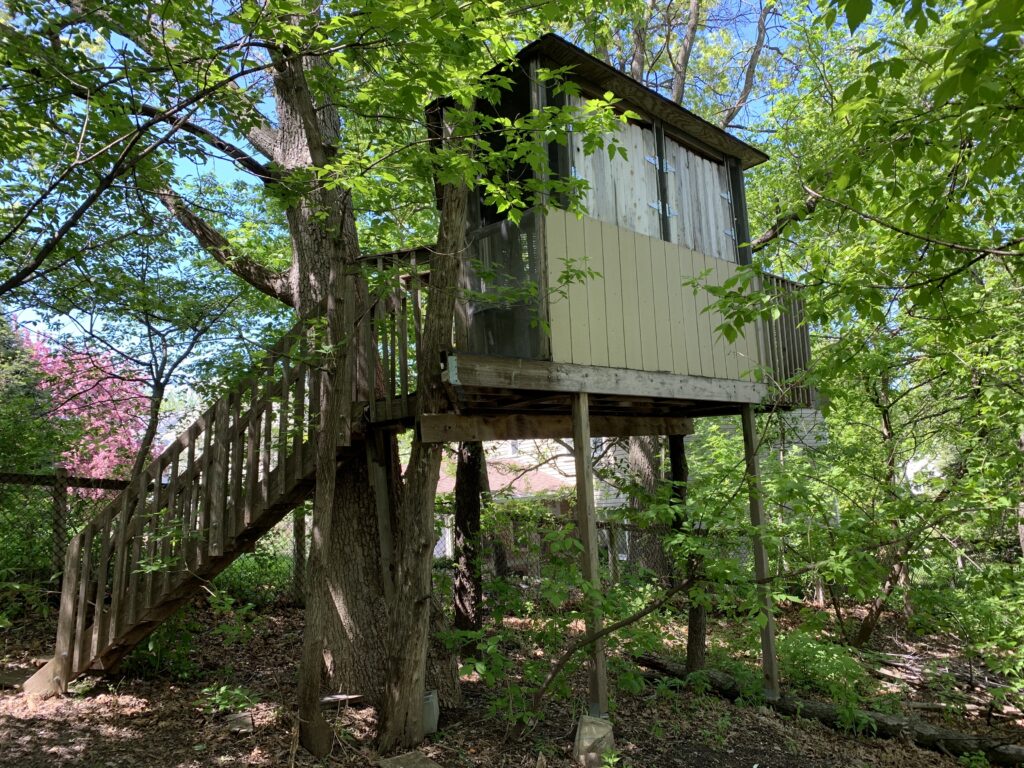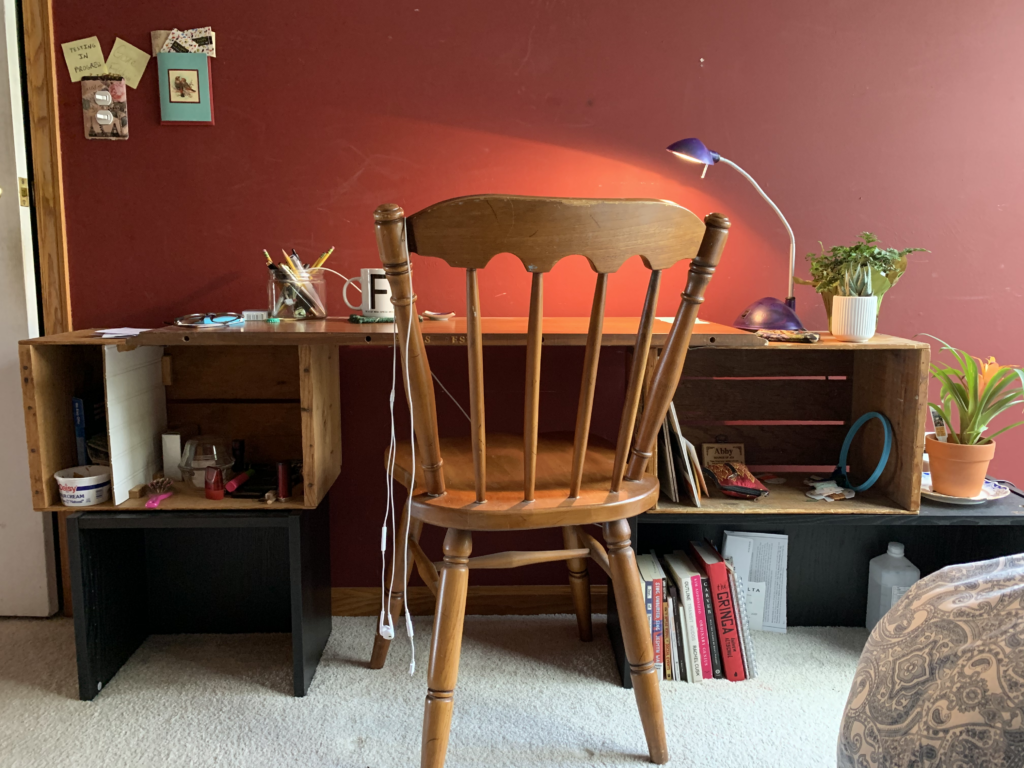After several years living away from where I grew up, I never imagined I’d be finishing my first year of grad school in my childhood bedroom. I feel wildly fortunate that I was able to come home, that my family and I have stayed healthy, and that my classes and work have been able to continue. But of course, it’s an adjustment; I lived alone in Chicago. Now, I share a wall with my mom and the noise from our respective Zoom meetings drifts back and forth. My dad clatters around with golf clubs and yard equipment downstairs. I tape a sign to my bedroom door imploring my parents to Please wait!! when I’m in class or on a call. I find myself in a space that is suddenly expanded compared to my small apartment in Chicago, which at the same time is hardly a space I can call my own.
I feel compelled to clean everything. And since I’ve only come home for vacations in the last five years, it’s a challenge to drag my brain into a productive headspace. I had a momentary flash of inspiration that my old treehouse could be the perfect workplace retreat—until I realized a family of raccoons had been living there and left it as trashed and filthy as a house party the morning after. Cons: roundworms. Pros: another thing I could clean.

My old tree house!
So I stuck with my bedroom, which, I know: I know, all the experts say you shouldn’t work where you sleep. I’ve said it myself, all high and mighty, and that’s karma, baby! But it’s the only space where I can close the door and temporarily bar the rest of the household. I fashioned a desk out of old crates, bookshelf scraps, and the extra leaf from our dining room table. It works.
Being in this space is very different from my usual post at the good old Lincoln Park or Loop locations. The sweep and pop of Slack notifications have replaced my coworkers’ voices; there’s no Whole Foods breakroom snacks or reception desk for friendly chats and Jolly Ranchers. And while Online Realtime somewhat fills the gap of seeing writers face to face, there are times I feel limited by its capabilities. In a recent appointment, one writer was trying to vocalize her ideas to me, and I wanted nothing more than to sketch things out in my notebook and slide it across the table so she could add to it. There are ways around such scenarios, but the tools aren’t quite the same.

My desk!
On the other hand, I’ve been able to immerse myself in written feedback like never before. With a room to myself and Slack muted—sometimes taking advantage of my physical freedom by sitting on the bed or spreading out on the floor—I can devote deeper focus to the writers’ drafts and how I’d like to respond to them. I’ve found myself expanding on and revising my own comments more than I used to for further clarity and inquiry. If and when we return to the UCWbL as it used to be, I think I’ll take greater advantage of cordoning myself off for these appointments.
Despite all the weirdness and change and fear, I have—as hopefully most of us have—been able to find some good. I’m able to eat family dinners with my parents again and watch murder mysteries with them on Sunday nights. I take walks through the neighborhood with my mom and make campfires with my dad. Because I have nothing else new to notice, I’m paying more attention to my writing, to our work at DePaul, and to the slowly coming spring in ways I never did. It’s a slowness I’d like to keep practicing even after things start to clear.
Discover more from UCWbLing
Subscribe to get the latest posts sent to your email.
